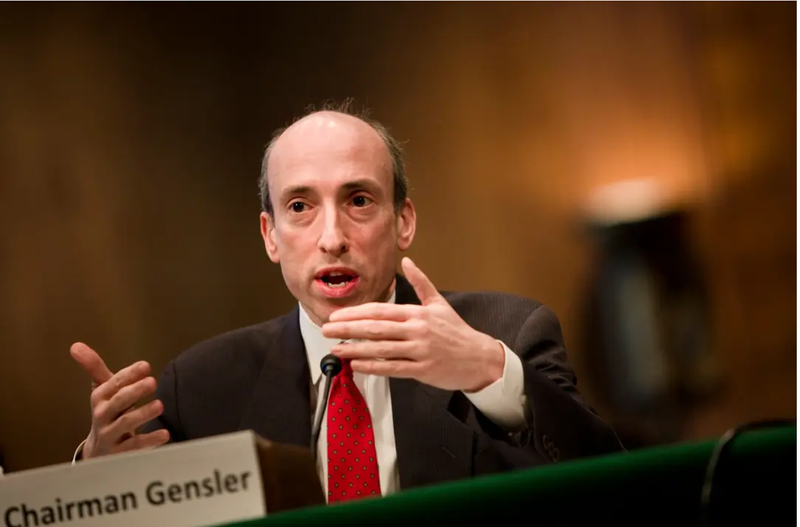UK Elections: AI & Technology
Overview: According to the UK’s Dept. for Science, Innovation and Technology, the country’s digital sector produced an estimated £161B ($204B) in gross value added (GVA) in 2023, representing roughly 7.4% of total GVA in March 2023, down to 7.2% in March 2024. Meanwhile, according to the la...
Facts
- Overview: According to the UK’s Dept. for Science, Innovation and Technology, the country’s digital sector produced an estimated £161B ($204B) in gross value added (GVA) in 2023, representing roughly 7.4% of total GVA in March 2023, down to 7.2% in March 2024. Meanwhile, according to the latest available data from March 2023, AI represents roughly £3.7B ($4.7B) in GVA, with the US’ International Trade Administration (ITA) estimating the UK AI market to be the third most valuable in the world at £16.5B ($21B). The UK government claims the country accounts for roughly half of European private capital investment in AI, with its tech sector valued at over $1T, third only to the US and China.1
- Overview: According to the UK’s Dept. for Science, Innovation and Technology, the country’s digital sector produced an estimated £161B ($204B) in gross value added (GVA) in 2023, representing roughly 7.4% of total GVA in March 2023, down to 7.2% in March 2024. Meanwhile, according to the latest available data from March 2023, AI represents roughly £3.7B ($4.7B) in GVA, with the US’ International Trade Administration (ITA) estimating the UK AI market to be the third most valuable in the world at £16.5B ($21B). The UK government claims the country accounts for roughly half of European private capital investment in AI, with its tech sector valued at over $1T, third only to the US and China.2
- Overview: According to the UK’s Dept. for Science, Innovation and Technology, the country’s digital sector produced an estimated £161B ($204B) in gross value added (GVA) in 2023, representing roughly 7.4% of total GVA in March 2023, down to 7.2% in March 2024. Meanwhile, according to the latest available data from March 2023, AI represents roughly £3.7B ($4.7B) in GVA, with the US’ International Trade Administration (ITA) estimating the UK AI market to be the third most valuable in the world at £16.5B ($21B). The UK government claims the country accounts for roughly half of European private capital investment in AI, with its tech sector valued at over $1T, third only to the US and China.3
- Overview: According to the UK’s Dept. for Science, Innovation and Technology, the country’s digital sector produced an estimated £161B ($204B) in gross value added (GVA) in 2023, representing roughly 7.4% of total GVA in March 2023, down to 7.2% in March 2024. Meanwhile, according to the latest available data from March 2023, AI represents roughly £3.7B ($4.7B) in GVA, with the US’ International Trade Administration (ITA) estimating the UK AI market to be the third most valuable in the world at £16.5B ($21B). The UK government claims the country accounts for roughly half of European private capital investment in AI, with its tech sector valued at over $1T, third only to the US and China.4
- Overview: According to the UK’s Dept. for Science, Innovation and Technology, the country’s digital sector produced an estimated £161B ($204B) in gross value added (GVA) in 2023, representing roughly 7.4% of total GVA in March 2023, down to 7.2% in March 2024. Meanwhile, according to the latest available data from March 2023, AI represents roughly £3.7B ($4.7B) in GVA, with the US’ International Trade Administration (ITA) estimating the UK AI market to be the third most valuable in the world at £16.5B ($21B). The UK government claims the country accounts for roughly half of European private capital investment in AI, with its tech sector valued at over $1T, third only to the US and China.5
- Current state: TechUK recommends seven technological priorities for the next government: an updated AI strategy focused on deployment and uptake, a new Technology Procurement Delivery Body, a “digital skills toolkit” by 2030, an Online Safety Sandbox, a new “pro-growth” regulatory model, a continuation of the country's “Scale-up sprint,” and a new approach to trade emphasizing digital economy agreements and new tech bridges. Meanwhile, the cross-party Science, Innovation and Technology select committee claims AI can complement human activity if governed appropriately. It notes that while the existential risk of AI is high impact but unlikely, the UK should complete its regulatory gap analysis “as soon as is practicable,” and continue consulting with experts over potential risks.6
- Current state: TechUK recommends seven technological priorities for the next government: an updated AI strategy focused on deployment and uptake, a new Technology Procurement Delivery Body, a “digital skills toolkit” by 2030, an Online Safety Sandbox, a new “pro-growth” regulatory model, a continuation of the country's “Scale-up sprint,” and a new approach to trade emphasizing digital economy agreements and new tech bridges. Meanwhile, the cross-party Science, Innovation and Technology select committee claims AI can complement human activity if governed appropriately. It notes that while the existential risk of AI is high impact but unlikely, the UK should complete its regulatory gap analysis “as soon as is practicable,” and continue consulting with experts over potential risks.7
- AI and technology as an election issue: While neither AI nor technology features as an option within YouGov or Ipsos' most important issues polling, the UK government conducted its third public attitudes to data and AI tracker survey in February 2024. The survey found that common terms respondents associated with AI included 'scary,' 'worry,' and 'unsure.' 52% believed AI would positively influence daily tasks, while 43% saw it as negative in relation to job opportunities. Job displacement was viewed as the greatest risk (45%), followed by a loss of human creativity and problem-solving skills (35%), and losing control of AI (34%).8
- AI and technology as an election issue: While neither AI nor technology features as an option within YouGov or Ipsos' most important issues polling, the UK government conducted its third public attitudes to data and AI tracker survey in February 2024. The survey found that common terms respondents associated with AI included 'scary,' 'worry,' and 'unsure.' 52% believed AI would positively influence daily tasks, while 43% saw it as negative in relation to job opportunities. Job displacement was viewed as the greatest risk (45%), followed by a loss of human creativity and problem-solving skills (35%), and losing control of AI (34%).9
- AI and technology as an election issue: While neither AI nor technology features as an option within YouGov or Ipsos' most important issues polling, the UK government conducted its third public attitudes to data and AI tracker survey in February 2024. The survey found that common terms respondents associated with AI included 'scary,' 'worry,' and 'unsure.' 52% believed AI would positively influence daily tasks, while 43% saw it as negative in relation to job opportunities. Job displacement was viewed as the greatest risk (45%), followed by a loss of human creativity and problem-solving skills (35%), and losing control of AI (34%).10
- Tory pledges: The Conservative Party pledges to increase public spending on AI research and development (R&D) by 10% from £20B to £22B, while maintaining R&D tax reliefs. They promise to continue investing over £1.5B in large-scale computer clusters, and 'build on the success' of the UK's nine specialist Catapults, providing £1.6B by 2028 to scale up and de-risk the transition from research to new technology. They plan to double AI and digital expertise inside the civil service while reducing its size to pre-pandemic levels, and use AI to 'free up' doctors and nurses within the NHS for frontline patient care. They will also criminalize the creation of sexualized deepfake images.11
- Tory pledges: The Conservative Party pledges to increase public spending on AI research and development (R&D) by 10% from £20B to £22B, while maintaining R&D tax reliefs. They promise to continue investing over £1.5B in large-scale computer clusters, and 'build on the success' of the UK's nine specialist Catapults, providing £1.6B by 2028 to scale up and de-risk the transition from research to new technology. They plan to double AI and digital expertise inside the civil service while reducing its size to pre-pandemic levels, and use AI to 'free up' doctors and nurses within the NHS for frontline patient care. They will also criminalize the creation of sexualized deepfake images.12
- Labour pledges: Labour claims regulators are 'ill-equipped' to deal with fast-developing technologies, and have committed to establishing a Regulatory Innovation Office. To build an industrial strategy for AI, planning barriers to new data centers will be removed to create a new National Data Library. The party will 'ensure the safe development and use of AI' through 'binding regulation' on tech companies and by banning sexually explicit deepfakes. Within the NHS, the number of state-of-the-art CT and MRI scanners will be doubled and technology will be integrated 'to transform the speed and accuracy' of diagnostic services. R&D institutions will receive ten-year budgets, scrapping short funding cycles.13
- Reform pledges: Reform UK's manifesto doesn't make reference to AI. However, the party does commit to using new technology in order to improve the UK's defense sector as well as in the police force to 'stop [officers] wasting time on paperwork.' Digital technology is also referenced by Reform in order to 'incentivise [sic] innovation to speed up building.'14
- Liberal Democrats: The Lib Dems pledge to create a 'clear, workable, and well-resourced cross-sectoral regulatory framework' for AI, promoting innovation while ensuring transparency, accountability, and unbiased use of personal data. They aim to negotiate the UK’s entry into the Trade and Technology Council with the US and the EU to lead in AI regulation and agree agree common standards within AI risk and impact assessments. Additionally, they pledge to increase research and development (R&D) to 3% of GDP by 2030 and 3.5% by 2034.15
Sources: 1assets.publishing.service.gov.uk, 2GOV.UK (a), 3GOV.UK (b), 4International Trade Administration, 5GOV.UK (c), 6committees.parliament.uk, 7Techuk, 8gov.uk, 9yougov.co.uk, 10Ipsos, 11public.conservatives.com, 12The Catapult Network, 13The Labour Party, 14assets.nationbuilder.com and 15Libdems.
Narratives
- Tory narrative, as provided by Spectator (UK). While the topic of AI may be flying under the radar during the election campaign, the prime minister's belief in a looming technological revolution deserves greater attention. Sunak is well aware that AI is the remedy to the country's stagnant wage growth and productivity, and if the Conservatives want to remain in Downing Street they must focus less on Labour fear mongering and more on a vision of the UK at the very forefront of world-leading technology and innovation.
- Labour narrative, as provided by New Statesman. With the UK's AI Summit exposing Sunak's subservience to the technology sector, Starmer and the Labour Party must take note and instead strike a fine balance between revolution and regulation. The UK must remain at the frontier of technology while placing much-needed focus on restricting the associated dangers of AI and providing a fair and safe environment for companies to compete and discover. Labour holds the potential over the next five years to transform society — they must do so with both optimism and caution.
- Progressive narrative, as provided by Socialist Worker. Hype around AI has artificially inflated the strength of global markets through promises of increasing productivity by appropriating the knowledge of workers while removing them completely from the production cycle. AI is yet another example of the global elite attempting to repackage the same oppressive hierarchy, and like both the dot com bubble and the 2008 financial crisis it is destined to fail.
- Nerd narrative, as provided by metaculus.com. There is a 50% chance that 'decision making under deep uncertainty' will be mentioned within Parliament in reference to Artificial Intelligence before 2031, according to the Metaculus prediction community







